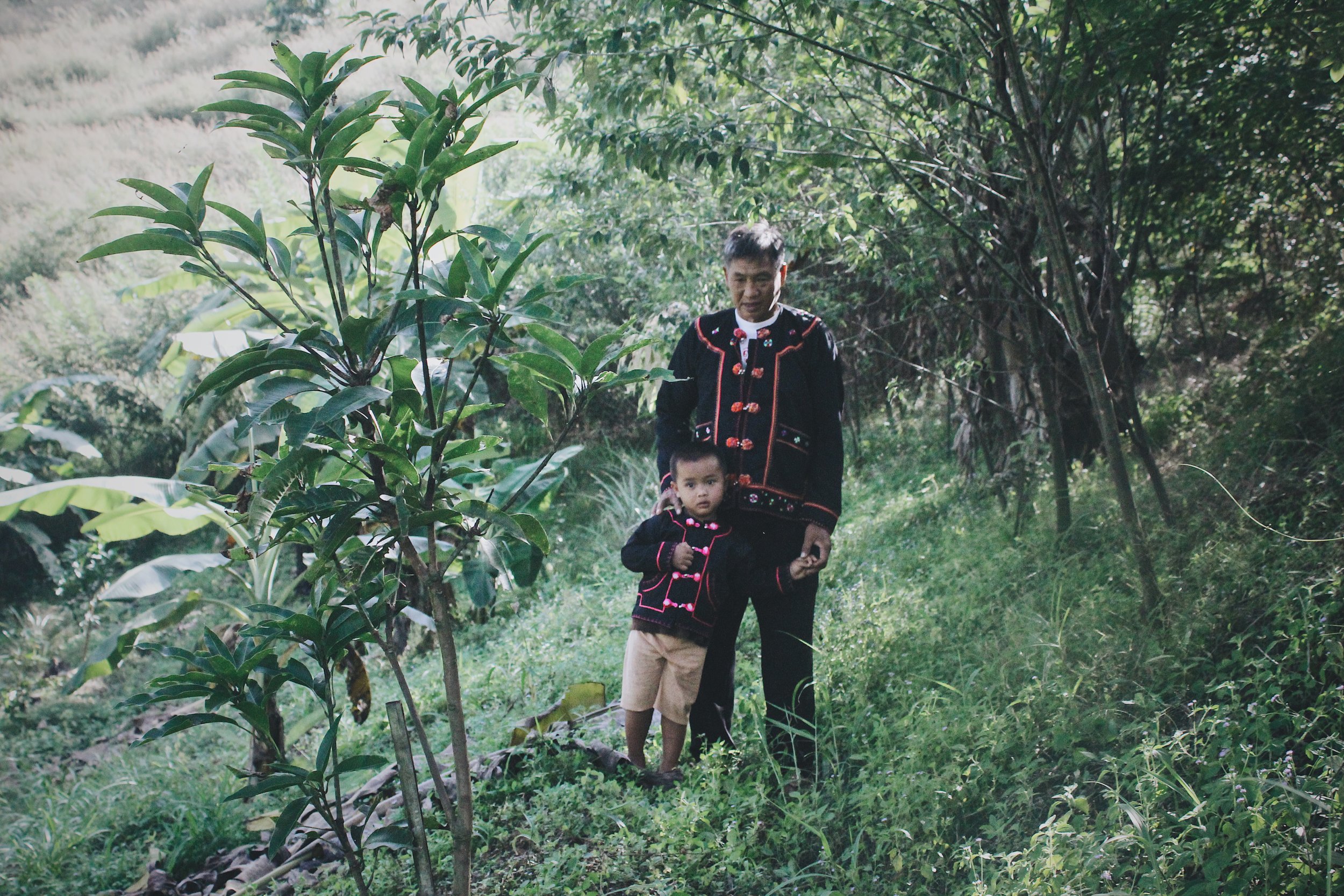Who are the hilltribes? They're groups of people living in the hills of Northern Thailand... but they aren't Thai. They are Lahu, Shan, Karen, and a number of ethnicities that do not have a country to call home.
Many of them are refugees who had to escape Burma or other places due to ethnic persecution. Living in Thailand can also be difficult, due to a lack of citizenship rights and protection. Every step of the way, however, they've been committed to making things better for future generations through sustainability and community management.
In November 2017, I had the opportunity to visit the communities of Huay Lu Luang and Ja Su Pah outside the city of Chiang Rai. The community members of Huay Lu Luang had been a part of Plant With Purpose's program for close to a decade. As I met with people from the village, they expressed how their lives had gradually gotten better as they learned to manage their forest as a community.
I was able to capture several stories of Plant With Purpose's impact.
VIDEO
NA KUH: CHANGE STARTS IN THE BACKYARD
Meet Na Kuh, a refugee, a farmer, and a grandmother. Years ago, she partnered with Plant With Purpose in order to pursue her big dream: for her community to work together within the village with no need to leave.
NARRATIVES
jah cho
Jah Cho has seen how hard life can be. In Northern Thailand, you’ll find dozens of small villages where ethnic minorities live. Most have not been granted citizenship, making it hard to find opportunities to earn a living.
THE GIFT OF SUSTAINABILITY
ah jee
Ah Jee’s entire demeanor radiated joy. He introduced us to his wife and their grandson and spoke about the hopes they had for the next generation and their village.
“Sustainability is important,” he told us. “You are together as a community and the togetherness should be carried on by the next generation.”
SOCIAL MEDIA
@PLANTWPURPOSE
“Hi I am Ah Boh, my wife is Nah Lo Kah. We have lived in this village for about three years. I used to live here when I was young. I left for school in another village. I got engaged, then married, and I moved back and have been in this village for three years.
They grow rice and corn in this village.
Farming is hard work. It’s hard growing rice and corn. For corn, we sometimes have to use herbicides when it gets too hard. The forest is important because having a forest means you have a good environment, you have a cool weather.
Families here do not have their own land or knowledge for farm management. In this village, land management is different because it belongs to the village chief. They can use the land but cannot own it because it belongs to the chief. They want to have their own land, they want to have their own trees. They don’t know how to do this yet, while the land belongs to the chief."
"My name is Ja Buh. Na Kuh is my wife.
My parents left (Myanmar) and took us here because they didn’t want us to go end up working for the military. I met (my wife) in this village when we arrived.
I started working with @plantwithpurpose five years ago. When I started, I joined an agroforestry farmers’ group. After that, three years ago, I started working by raising pigs as a demonstrator.
.
Sustainability, for me, is like starting an agroforestry plot. Even though I can’t harvest it all during my lifetime, I can pass it on to my children. They can take care of it and pass it on to their children."
“When I was in Myanmar I served in the Burmese army for 10 years. We fought another group called WAH. I saw combat and was forced to shoot. My friend was shot and I had to carry my friend while he was bleeding.
I felt pity, not just for my friends, but for the family of my friends who lost their loved ones. And sometimes they’d go a whole year without seeing their loved ones.
Here, the more you work, the more you receive, you can use it to help your family... being like this is better than working like slaves for someone else.
It’s not for just myself, but also my children. If you separate and just work on your own, you cannot live together. My children are my motivation to bring together leadership in the family. My faith inspires me to listen to one another and help, and that encourages me to bring that kind of leadership here, and to love my family.
When I was about my grandson’s age, I wasn’t like him. I never slept in my house... my family spent my childhood in the forest hiding. He will have a very happy life and if he wants to earn money it’l be easier for him.”










